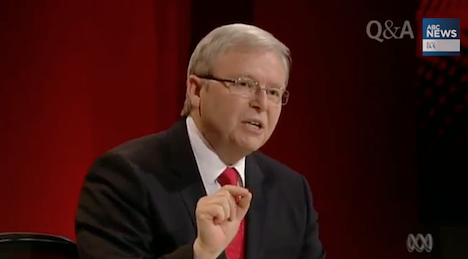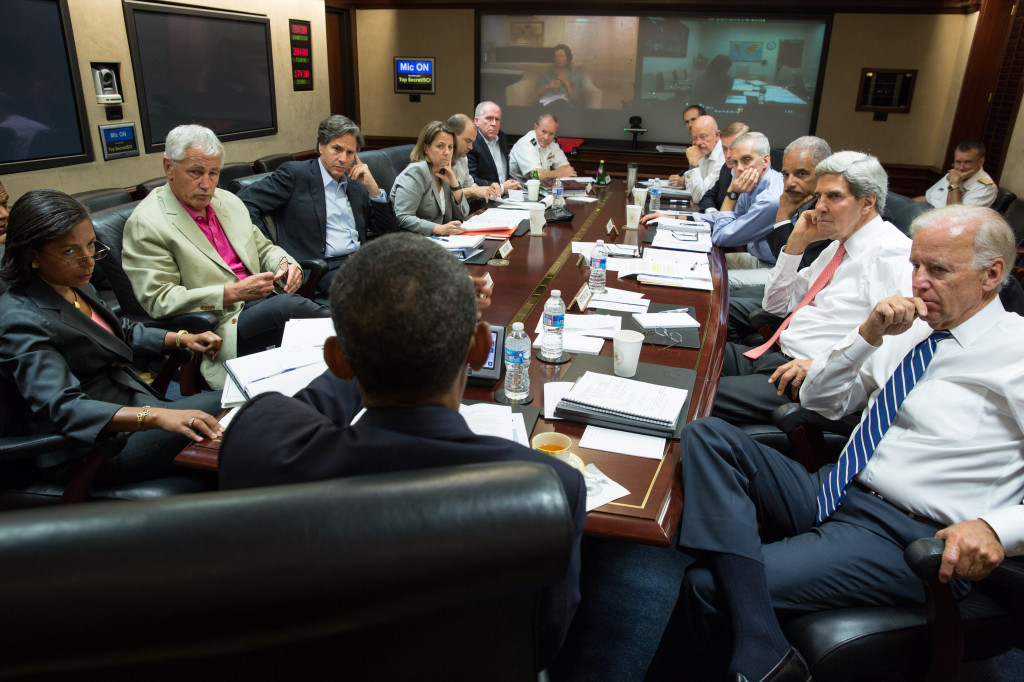Behind in the polls, despite the fact that supporters engineered his return as prime minister earlier this summer to boost the Australian Labor Party’s reelection hopes, Kevin Rudd is increasingly depending on his support for same-sex marriage to encourage young, urban voters not to abandon him in favor of the center-right coalition headed by Liberal Party leader Tony Abbott.![]()
In a passionate plea on the campaign trail, Rudd confronted an opponent of same-sex marriage by arguing that supporting marriage equality is fully compatible with Christian faith, in one of the most memorable moments of the 2013 Australian campaign — and one that’s largely won cheers from Australians and same-sex marriage enthusiasts globally:
Challenged by a pastor on a Q&A programme on Monday night as to why as a Christian he did not follow the teaching of the Bible, that marriage was between a man and a woman, Rudd replied: “If I was going to have that view, the Bible also says that slavery is a natural condition because St Paul said in the New Testament ‘slaves be obedient to your masters’, and therefore we should all have fought for the confederacy in the US civil war.”
He added: “I mean, for goodness sake, the human condition and social conditions change. What is the central principle of the New Testament? It is one of universal love, loving your fellow man.”
It’s something worth watching in full:
While it might be a ‘West Wing’ or ‘prime ministerial’ moment for Rudd, it’s also perhaps one of the last tricks up Rudd’s sleeve to galvanize Labor enthusiasm ahead of Saturday’s vote — and to plant doubts about the social conservatism of an Abbott-led government.
Unfortunately for Rudd and proponents of same-sex marriage, most polls show that on the two-party preferred vote (Australians rank their preferred parties), Labor faces a 52% to 48% defeat. Although marriage equality has become one of the top issues in the election, it’s not nearly the only issue in the campaign — it joins Australia’s weakening economy, budget issues, how to handle the ever-growing influx of asylum-seekers, relations with Asia, a controversial Labor carbon tax, and paid parental leave, not to mention the stability, discipline and maturity of a Labor government that, over two terms, has purged a sitting prime minister twice.
Although Rudd has only came to the view that gays and lesbians should have the same marriage rights as other Australian couples, he campaigned in the 2007 election on greater marriage equality and enacted reforms in December 2008 as prime minister that delivered the same rights to ‘de facto partners’ as those enjoyed by cohabiting opposite-sex couples that included many of the key rights that married couples enjoy on joint taxation, inheritance, employment and entitlement.
After losing the prime ministership in June 2010 after an internal Labor revolt against his leadership style, Rudd returned three months ago after polls showed that Labor faced a catastrophic loss under former prime minister Julia Gillard. In that time, Rudd has not only become the first sitting prime minister to support marriage equality, but announced in the campaign’s first debate against Abbott that he would call a ‘conscience vote’ on same-sex marriage within 100 days of reelection. Although Abbott supported the reforms to provide same-sex partners with ‘de facto partner’ rights in 2008 and Abbott has a lesbian sister, he has insistently ruled out the possibility that a Liberal/National Coalition government would enact marriage equality.

